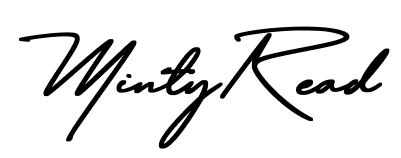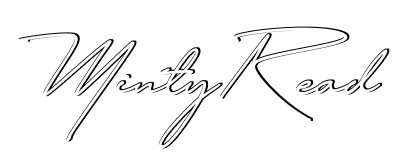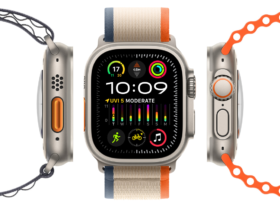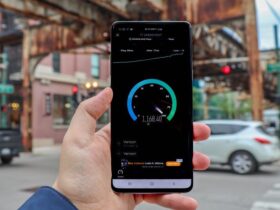Embarking on a fitness journey is an exciting endeavor, but it can also be overwhelming, especially when it comes to nutrition. What you eat plays a crucial role in achieving your fitness goals, whether you aim to lose weight, build muscle, or simply improve your overall health. This guide will provide you with a comprehensive gym diet plan designed specifically for beginners, ensuring that you get the most out of your workouts and start seeing results.
Understanding the Basics of Nutrition
Before diving into specific meal plans, it’s essential to understand the basic principles of nutrition. Your body requires three primary macronutrients: carbohydrates, proteins, and fats. Each plays a vital role in your overall health and fitness:
- Carbohydrates: These are your body’s primary source of energy, especially during high-intensity workouts. Carbs are broken down into glucose, which fuels your muscles. It’s important to choose complex carbohydrates like whole grains, vegetables, and legumes, as they provide sustained energy and keep you full longer.
- Proteins: Proteins are the building blocks of muscle. They are essential for muscle repair and growth, especially after a workout. Incorporating high-quality protein sources like lean meats, fish, eggs, and plant-based options such as beans and tofu into your diet is crucial.
- Fats: While fats often get a bad rap, they are essential for hormone production, nutrient absorption, and overall health. Opt for healthy fats like avocados, nuts, seeds, and olive oil.
- Micronutrients: Vitamins and minerals, though required in smaller quantities, are equally important. They support various bodily functions, from bone health to immune function. A diet rich in fruits, vegetables, and whole foods will ensure you get the necessary micronutrients.
The Importance of Meal Timing
When it comes to a gym diet, meal timing can significantly impact your performance and recovery. Eating the right foods at the right times ensures that your body has the energy it needs for workouts and the nutrients required for recovery.
- Pre-Workout Nutrition: Fueling your body before a workout is crucial for maximizing performance. Aim to eat a balanced meal 2-3 hours before your workout, consisting of complex carbohydrates and protein. For example, oatmeal with a scoop of protein powder and a banana is an excellent choice.
If you’re short on time, a small snack 30-60 minutes before your workout can also suffice. Opt for easily digestible carbs, such as a piece of fruit or a small smoothie. - Post-Workout Nutrition: After your workout, your body needs nutrients to repair muscle tissue and replenish glycogen stores. Aim to consume a meal or snack containing both protein and carbohydrates within 30-60 minutes after exercising. A protein shake with a banana or a chicken and quinoa salad are great options.
- Hydration: Staying hydrated is often overlooked but is a critical component of any gym diet. Dehydration can lead to decreased performance, fatigue, and even injury. Aim to drink water throughout the day, and consider an electrolyte drink if you engage in intense workouts lasting longer than an hour.

Sample Gym Diet Plan for Beginners
Now that you have a basic understanding of nutrition and meal timing, let’s dive into a sample gym diet plan for beginners. This plan is designed to provide balanced nutrition, support muscle growth, and enhance overall fitness.
Breakfast:
- Option 1: Scrambled eggs with whole-grain toast and avocado. Add a side of mixed berries for a dose of antioxidants.
- Option 2: Greek yogurt with honey, mixed nuts, and a sprinkle of granola.
Mid-Morning Snack:
- Option 1: A banana with a tablespoon of peanut butter.
- Option 2: A protein smoothie made with almond milk, spinach, a scoop of protein powder, and a handful of frozen berries.
Lunch:
- Option 1: Grilled chicken breast with quinoa, steamed broccoli, and a side salad with olive oil dressing.
- Option 2: A turkey and avocado wrap on a whole-grain tortilla with a side of baby carrots.
Afternoon Snack:
- Option 1: A small handful of almonds and an apple.
- Option 2: Cottage cheese with pineapple chunks.
Dinner:
- Option 1: Baked salmon with sweet potato and sautéed spinach.
- Option 2: Stir-fried tofu with mixed vegetables and brown rice.
Evening Snack (Optional):
- Option 1: A small bowl of mixed berries with a dollop of Greek yogurt.
- Option 2: A slice of whole-grain toast with almond butter.
Tips for Staying on Track
Starting a new diet can be challenging, especially if you’re new to fitness. Here are some tips to help you stay on track:
- Plan Your Meals: Taking the time to plan your meals for the week can save you time and prevent unhealthy eating habits. Consider meal prepping on weekends to ensure you have nutritious options readily available.
- Listen to Your Body: Everyone’s nutritional needs are different. Pay attention to how your body responds to certain foods and adjust your diet accordingly. If you feel sluggish or tired, you may need to tweak your carbohydrate intake or meal timing.
- Avoid Extreme Diets: While it may be tempting to try fad diets that promise quick results, these are often unsustainable and can lead to nutrient deficiencies. Focus on creating a balanced diet that you can maintain long-term.
- Be Patient: Results won’t happen overnight. Building muscle and losing fat takes time and consistency. Stick to your diet and workout plan, and you’ll see progress over time.
- Stay Hydrated: Water is essential for every bodily function, including digestion and muscle recovery. Make it a habit to drink water regularly throughout the day, and increase your intake during and after workouts.
- Seek Professional Guidance: If you’re unsure about your nutritional needs or have specific dietary restrictions, consider consulting with a registered dietitian or nutritionist. They can provide personalized advice and help you create a plan that aligns with your fitness goals.

Common Mistakes to Avoid
As a beginner, it’s easy to make mistakes when starting a new diet. Here are some common pitfalls to watch out for:
- Skipping Meals: Skipping meals can lead to energy crashes, decreased performance, and overeating later in the day. Aim to eat balanced meals and snacks throughout the day to keep your energy levels stable.
- Overeating Healthy Foods: While it’s important to choose nutritious foods, portion control is still key. Even healthy foods can lead to weight gain if consumed in excess. Be mindful of your portion sizes, especially when it comes to calorie-dense foods like nuts and avocados.
- Neglecting Protein Intake: Protein is crucial for muscle repair and growth. Ensure that each meal contains a source of protein, whether it’s animal-based or plant-based.
- Ignoring Rest Days: Your body needs time to recover, and nutrition plays a big role in this process. On rest days, continue to eat balanced meals to support recovery and avoid the temptation to skip meals or indulge in unhealthy foods.
- Inconsistent Eating Habits: Consistency is key to seeing results. Try to maintain a regular eating schedule and avoid drastic changes to your diet.
Conclusion
Starting a gym diet as a beginner can feel overwhelming, but with the right knowledge and a solid plan, it becomes manageable and even enjoyable. Remember that nutrition is just one part of the equation; staying consistent with your workouts, getting enough sleep, and managing stress are also vital components of a successful fitness journey.
By following this guide and making mindful choices, you’ll be well on your way to achieving your fitness goals. Embrace the process, stay patient, and celebrate your progress along the way. Your body will thank you for the effort you put into nourishing it properly.






















Leave a Reply